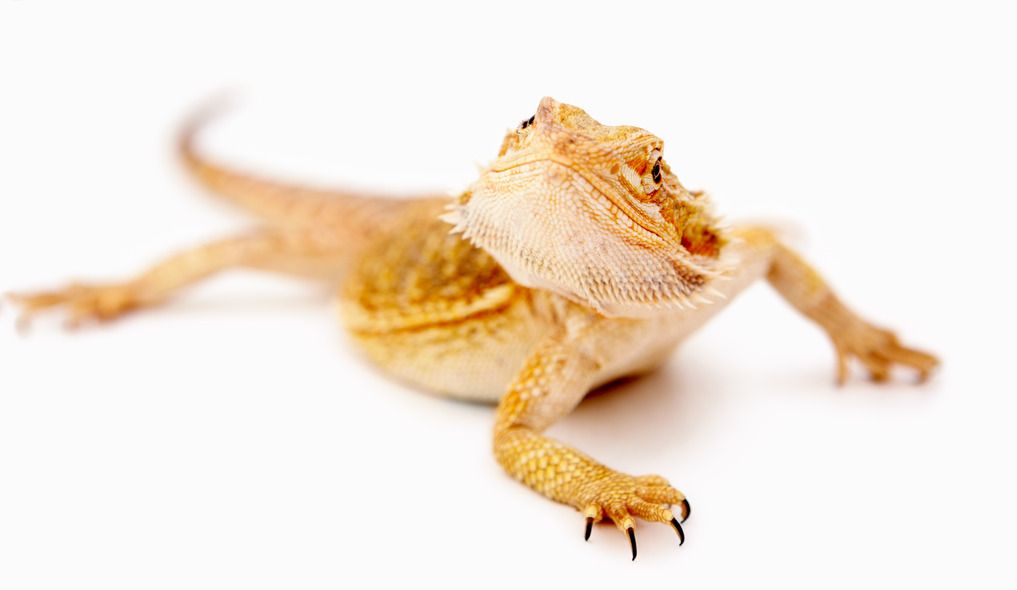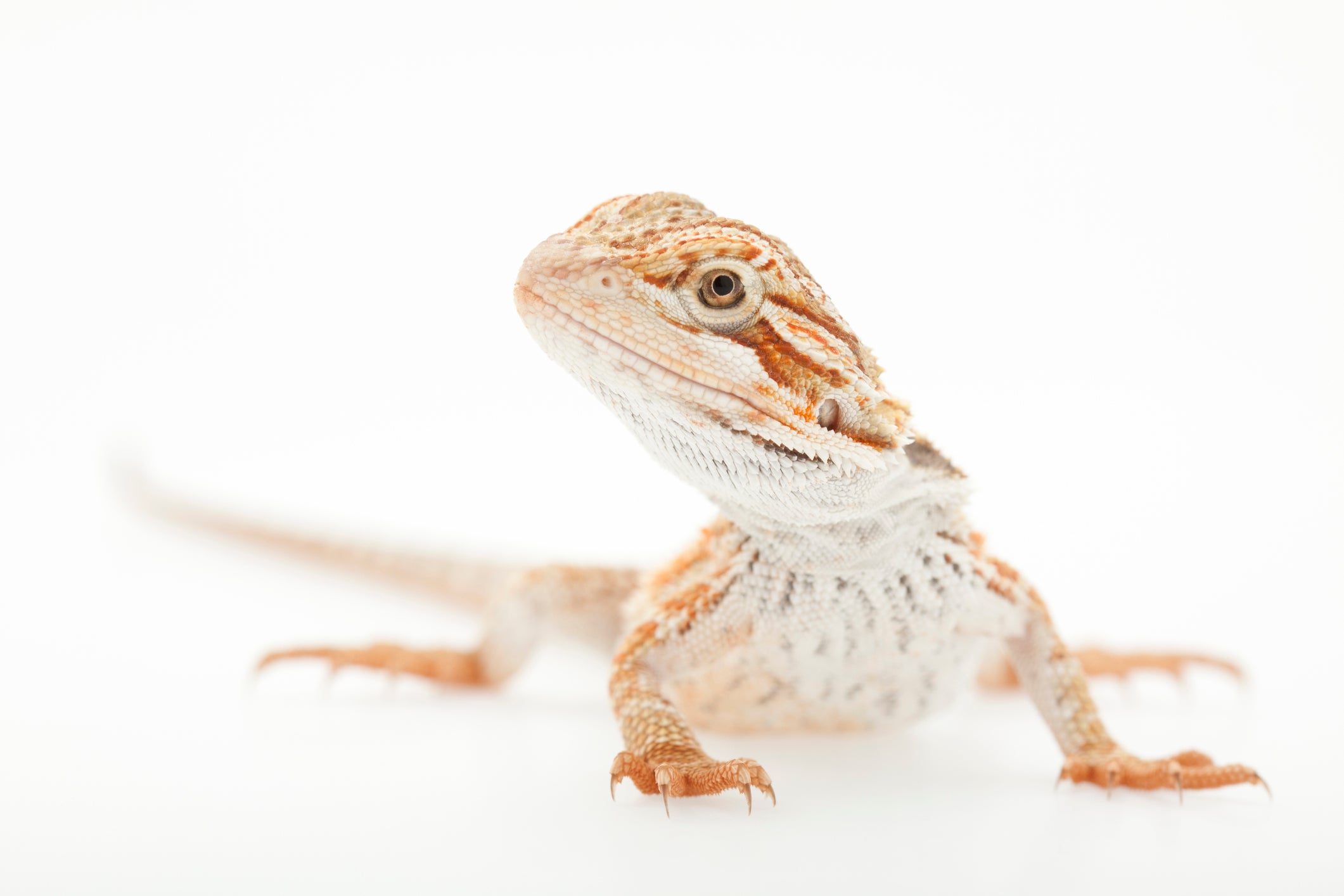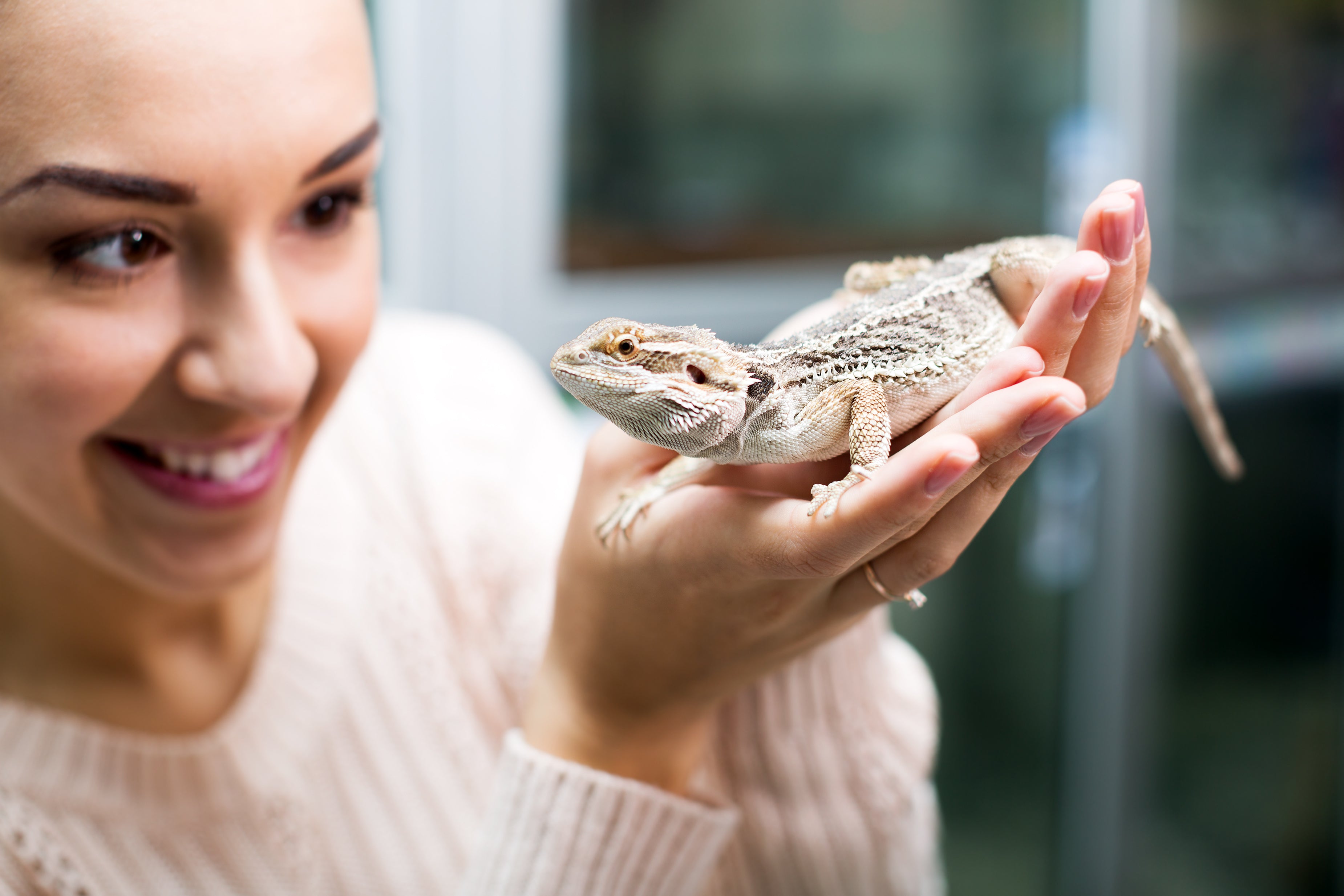BEARDED DRAGONS AND, HOW TO AVOID THE COMMON MISTAKES THAT OWNERS MAKE THAT SHORTEN THE LIFESPAN OF THEIR DRAGONS, AND HOW TO SPOT SOMEOF THE CONDITIONS AND DISEASES YOU MAY HEAR ABOUT
There are signs to look out for when it comes to your dragon and their general health that are easy to miss and some things to look for that you may not even consider. Here are some of the signs that you need to examine your care, handling, diet, lighting setup, or seek veterinary attention if these are noticed:
- Lethargy - This is when your dragon seems extra lazy and tired, they may not be interested in doing the things they usually do, ay want to sleep all the time, avoid basking and generally seem like they have no energy.
- Coughing, choking, runny nose, clicking, opening their mouth to breathe.
- Color changes - Changes of colors in your dragon indicates their mood or condition depending on the context of the situation and the color in question.
- Loss of appetite - If your dragon is eating less than usual or not at all.
- Scratching, digging, or both at the walls or floor of their tank. - Your dragon seems energetic and keeps scratching at the glass or digging at the substrate in their tank.
- Black bearding - Temporary black is usually an indicator of mood, but if it persists, this can be a sign of discomfort.
- Aggressive - This can be a sign that your dragon is feeling unwell or in discomfort.
Any or all of these signs are something that you need to explore. It could be something to do with your husbandry, or it could be something that requires veterinary attention, but we shall examine each sign and symptom and what they could mean.
Respiratory Infection
If your dragon is acting lethargic, opening their mouth to breathe, making popping, choking, or gasping noises or drooling any, some or all of these could mean a respiratory infection. A respiratory infection can be caused by your humidity being too high, temperatures being too low, by excessive bathing, unsanitary conditions in their habitat. They can also be passed on from another dragon due to the fact they are contagious. If your dragon presents any of these symptoms, then you will need to seek veterinary attention as soon as possible, a respiratory infection can be fatal if left untreated. Oral antibiotics are the only way it can be treated. In the meantime, you can ensure that your temperature is on point, raising them a little wouldn't be a bad idea and that your humidity is as low as possible. Also, you want to avoid bathing.
Metabolic Bone Disease
Metabolic Bone Disease or MBD is an unfortunately all too common condition when it comes to bearded dragons or any reptile. Symptoms vary depending on the severity of the issue but can include loss of appetite, lethargy, and also loss of use of one or more of their limbs. Over time this issue will get progressively worse, and their bones will start to become soft, brittle, and easily broken. If proper steps are taken, the symptoms of MBD can be reversed to correct the problem, but any injury that occurs during this time will be permanent.
MBD occurs when the dragon isn't getting enough calcium in their diet, or they are unable to process the calcium that they are getting. If you can examine the menu on offer and be fully confident that they are getting a sufficient amount of calcium, then you need to figure out why they may not be absorbing the calcium they are being given from their diet correctly. Improper calcium absorption is usually down to the UVB you're using. UVB must be a certain kind and strength to provide your dragon with enough. If it's not, then it doesn't matter how much calcium you're offering in your dragon's diet, it simply will not be absorbed. As well as determining calcium intake and the correct UVB lighting, it is also imperative that you seek veterinary attention as the reptile may need calcium injections and other steps to correct the issue that only a licensed vet can determine.
impaction
Impaction is common in bearded dragons, if your dragon has no appetite, seems sluggish and lethargic, has a black beard, has not been passing any stools and also has a hard lump that you can feel on their lower abdomen then they may be impacted. Impaction can occur in dragons when a build-up occurs in their digestive system. The food that they eat can be one of the reasons for this happening. If their diet contains too much chitin, then the reptile can find it hard to digest, such as can occur with mealworms or any other food that contains a hard shell; this, in turn, builds up in their system causing a blockage. If they don't get enough hydration, then this can affect how well they digest their food in general, and this can cause the food to build up in their lower abdomen, again causing a blockage. Reptiles require a specific temperature for them to be able to digest, so another reason for impaction can also be if the lighting in their enclosure is inadequate.
If you suspect impaction in your dragon then it is vital to address all these points, you need to ensure that the proper diet is provided, by not feeding them foods that are too hard, and also making sure that they are properly hydrated. Your husbandry will also need to be evaluated to make sure that they are being exposed to proper basking temperatures while in their habitat. Substrate can also play a part, particularly in younger reptiles, if they ingest too much of a particle substrate such as sand or walnut shell, then this can build up in their abdomen and cause a blockage. If you are using a loose substrate, it is always a good idea to have a separate feeder tank your dragon can eat in, so this lessens the risk they will ingest enough to cause a blockage. However, they are still able to lick it while inside their enclosure. To remove this risk altogether, use a non-particle substrate such as slate tile or non-adhesive shelf liner. Once these factors are addressed, and you are still having issues with impaction, you can also help your dragon to pass the blockage themselves by giving them a warm bath. While you do this, you can administer some pureed canned pure pumpkin and a couple of drops of olive oil to aid them in passing the blockage internally.
If none of these options seem to enable your pet to pass the blockage naturally, then you will need to seek emergency veterinary treatment as soon as possible.
Prolapse
A prolapse can occur in any species, including humans, this is when part of the bowel on from the inside of the reptile slips out of the cloacal vent and becomes visible on the outside. If your dragon is suddenly very lethargic, black bearding seems very out of it, and you can see something red visible protruding from the vent area, then this sounds like a prolapse has occurred. Impaction is the leading cause of a prolapse and can be prevented by all the same ways that you would avoid impaction (see "Impaction" above); however, you would not treat this condition in the same way.
Prolapse needs emergency veterinary attention while you are waiting for them to be able to be in the care of a vet. However, you must ensure that the vent area is kept moist, it must not dry out, or the tissue will start to die, and this is very bad. The best way to help the dragon through the time it will take to get to the vet is to prepare a shallow warm bath of water with a tablespoon or so of sugar dissolved into the water. The sugar will help prevent infection and may also help shrink the area protruding out of the dragon. The bath may even help the area to retract entirely back into the dragon, but this method is not guaranteed to do so, you must seek veterinary attention while you are doing this.
Adenovirus
Adenovirus is a contagious viral infection that can occur in bearded dragons. It is also known as "wasting disease" because it can appear that the dragon is wasting away, and also the "stargazing disease." Since one of the main symptoms is that the dragon seems to be stargazing, they will hold their head back at a slightly unnatural angle and stare upwards. If you notice this symptom or your dragon has lost their appetite or is very lethargic, it could be adenovirus (ADV). However, several other symptoms can be present, such as seizures and shaking limbs, which make this condition quite noticeable. Not every dragon will present signs, some remain asymptomatic, but can still be highly contagious, which is why it's crucial that when you get a new dragon. You get a vet check, including bloodwork done as soon as possible to ensure your new pet has a clean bill of health and won't be able to infect your other reptiles. However, you do not have to worry about catching it yourself as it is not spread from dragons to humans; it is easily spread from reptile to reptile regardless of the species.
How contagious this condition is, is also why it is necessary to implement sanitary procedures when it comes to your reptiles, always ensure that you wash your hands and clean your dragon's enclosure. Pay particular attention to any fecal matter, which can also carry the disease and ensure that there is as little as possible direct or indirect contact between your reptiles. They can contract the disease from sharing food, coming into contact with fecal matter from another dragon, and generally just being in unsanitary conditions around other dragons. It is most commonly either contracted at birth from the infected mother, or from one of the other dragons born in the clutch when they are living in the same tank. ADV has become a particular problem with dragons that have been acquired from a pet store for this reason. ADV is known to affect the organs of your pet dragon, including their liver and kidneys, and sometimes it can be challenging to detect until it's too late and is only discovered after the dragon has passed and a necropsy is performed. You can get your dragon check for adenovirus by getting a fecal exam and bloodwork done at the vet, as was mentioned earlier this is why it is recommended with any new reptilian addition to your household.
Treatment for ADV can vary; there is no actual cure, but once it has been diagnosed, the reptile in question should be put under strict quarantine procedures in its enclosure to help prevent the spread of the disease. Ensure that your lighting, UVB, and heat are all adhered adequately to as this will help your dragon maintain their immune system. A course of antibiotics may be prescribed to prevent or treat any secondary infection that may have or has been caused by the disease, and proper care and hydration will be required to help your dragon to be as healthy as possible for as long as possible. Unfortunately, this disease can fail to thrive, and the dragon will need to be assessed regularly for their quality of life if they refuse to eat on their own and are suffering then euthanasia may be the best option rather than ongoing care that may prolong their suffering.
A Healthy Bearded Dragon
Although these conditions all sound very scary, they are not commonplace, and the vast majority of dragons will go on to live happy, healthy lives with their owners. But it is always important to remember that they do have particular needs that must be adhered to. The main things to bear in mind are that as long as your dragon is eating well, drinking well, basking, pooping, and has energy, then you more than likely have absolutely no reason to worry. Just ensure your dragon has a regular veterinary checkup and fecal done every six months and bloodwork and x-ray every twelve months unless any issues arise in between those times. You will be doing the best you can to ensure a long and happy life for your bearded companion.




2 comments
Reptile Supply
Hi Abi — We’re not veterinarians, so we can’t give you any kind of diagnosis. However, whatever is going on with your beardie’s eye sounds too serious to attempt to treat with over-the-counter medication. Please make an appointment to have her examined by an experienced reptile veterinarian ASAP. If your dragon does not have a veterinarian, you can find one near you with this directory: https://reptifiles.com/reptile-vet-directory.
Abi
ive been looking for it all day, but my bearded dragon is about 2 years old, shes a rescue, and she just recently startes closing her left eye always, she opened it and it looked like she was blind her eye was just milky and grey, what could i do to help her? like what antibiotics could i get to get rid of it whatever it is?
Leave a comment
All comments are moderated before being published.
This site is protected by hCaptcha and the hCaptcha Privacy Policy and Terms of Service apply.